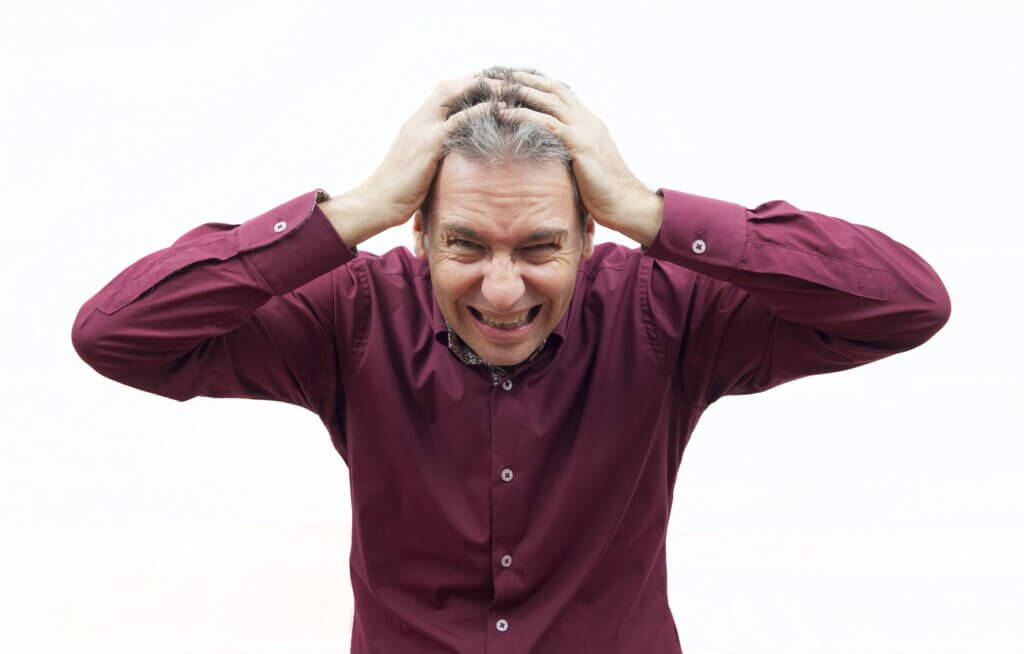Both stress and low testosterone levels share a lot of the same symptoms. These symptoms include low libido, trouble sleeping, fatigue, depression and lack of energy. In fact, stress and low T may actually be linked. It is said that approximately 10-20% of erectile dysfunction cases result from psychological factors. So stress and anxiety, whether job-related or due to any other problem, may have an impact on your sex life.
Erectile Dysfunction
The causes of ED can be split into two categories; physical and physiological. There is also a difference between having an occasional inability to maintain an erection which is totally normal, and chronic erectile dysfunction. When it’s happening often, it can result from biological or psychological factors regardless of age. You should only be concerned or seek medical advice when the problem becomes persistent.
Issues such as diabetes, hypertension and heart attacks are often contributing factors for ED in older men. Younger men are more likely to suffer from ED after a physical trauma such as an injury, cigarette or alcohol abuse, or due to stress.
It makes sense that stress would be connected to erectile dysfunction. If you’re feeling anxious or tired, then it is unlikely you’re going to be in the mood for sex. You may try to force yourself but oftentimes it results in not being able to get or maintain an erection. This becomes a vicious cycle because then the next time you try to have sex you’re reminded of the problems you had the previous time, which makes you fail again. Unfortunately this is a classic mind-body phenomenon. Since sexual activity is controlled by the nervous system we don’t have conscious control over it.
Conversely, sex is a great way to relieve stress due to the release of endorphins and other hormones which help elevate your mood.
Women and stress
Women are also affected by stress when it comes to sex. For women, sex is a strong emotional experience too. And as with men, women can mistakenly condition themselves to think of sex in a negative way from previous habits, and so stress triggers can be developed which cause automatic physical reactions. Stress affects the concentration of all sex hormones since when the body is stressed it produces cortisol at the expensive of the sex hormones. Therefore, our body fights stress by closing the sex mechanisms, thus lowering our libido, sperm count and interfering with fertility.
Less stress, less symptoms
The best thing you can do to reduce stress is to stop worrying about testosterone. There are other things you can do to lower stress which will in turn improve your sexual health including:
- Exercising regularly. Doing so improves your blood flow and reduce your stress levels.
- Avoid drinking
- Avoid smoking
- Eat healthy
- Get enough sleep
- Learn how to relax
- Lose weight
Alternative therapies that could be helpful in reducing stress include yoga, meditation and acupuncture. There are also herbs and supplements that are available which are said to lower stress levels.
Conclusion
While stress and low testosterone share symptoms, and while high levels of cortisol resulting from stress can decrease testosterone, there isn’t much evidence suggesting that taking testosterone can reduce stress or that reducing stress will elevate testosterone.
However, reducing stress has been linked to improved sexual and overall health. If you’re stressed it is important to discuss with your doctor ways to reduce it and engage in regular exercise and a healthy lifestyle. Stress isn’t good for the body as a whole, and it does have an impact on sex life. Remember, the more anxiety you have about sex, the more problems you will encounter during sex.

